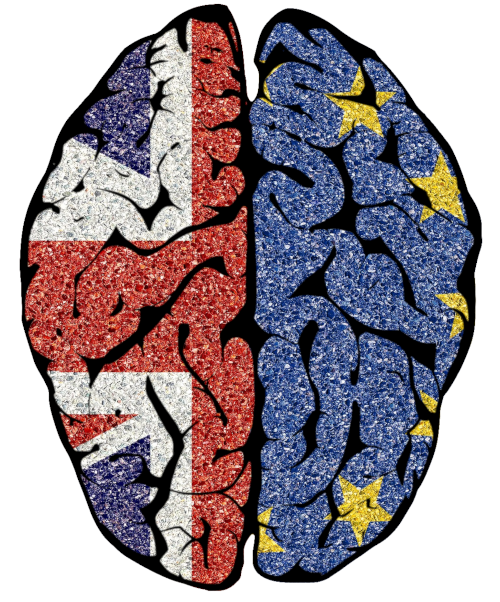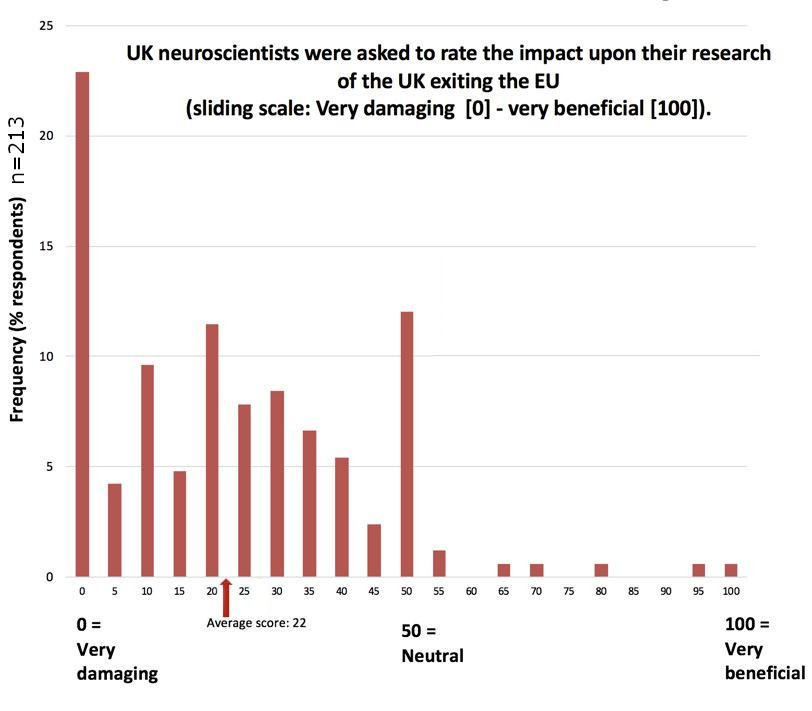Place your votes: BNA Council & Committee elections
22nd July 2024
17th Oct 2018
 Every indication is that departure of the UK from the EU will be very damaging for the neuroscience community and those who benefit from its work.
Every indication is that departure of the UK from the EU will be very damaging for the neuroscience community and those who benefit from its work.
It may take many years or decades to recover from the harm brought by Brexit, and return to conducting the high calibre medical science research that the UK is currently recognised for the world over - if indeed we ever will.
In light of the risks represented by Brexit to both clinical and research neuroscience in the UK, the key position points and priorities for the BNA are as follows:
To inform and promote these priorities, the BNA is engaged in a number of activities:
Cons
BNA Council members have written to and contine to engage with local MPs and MEPs to raise awareness of these threats to UK science, and push them up the agenda in Brexit negotiations. They also emphasised the danger of being excluded from the negotiations for Horizon Europe, which are now looking likely to take place after the UK has left the EU and hence having no say in the discussions.
The BNA is an active member of the Federation of European Neuroscience Societies (FENS). Through FENS we are both able to have a voice at a political level, for example by being a member of the European Brain Council (EBC). The BNA's committment to FENS also means that, at the level of the individual, all BNA members are members of FENS and the European neuroscience community. This will continue regardless of the UK's relationship with the EU.
BNA President Stafford Lightman has presented the BNA’s position at the European Parliament. Standing alongside colleagues from FENS and EBC, the BNA was able to state concerns about Brexit and support them with data on the direct impact on funding, drug supply, and collaborations.
Working together with other science organisations, the BNA has been able to strengthen the voice of the neuroscience community by joining others with shared positions. In particular we have contributed to the Brexit consultations held by the Royal Society of Biology, and are working closely with FENS, the Academy of Medical Sciences, Wellcome, and the Royal Society.
Brexit is nothing if not mired in uncertainty. However, we have facilitated direct discussion between members and policy experts at the 2017 Festival of Neuroscience and will do so again at the 2019 Festival of Neuroscience, in order to give people the chance to ask questions directly and attempt to gain some clarity.
As a timely commitment to European collaboration we are delighted to be holding the 2019 Festival of Neuroscience in Dublin, in partnership with our Irish counterparts, Neuroscience Ireland. The event will bring together hundreds of neuroscientists from around the world, as well as Partner Societies including the French Neuroscience Society and Canadian Association for Neuroscience. We will use the Festival to celebrate ‘Together Science Can’ and will carry on striving to ensure neuroscientists can continue to do science together.
Write to your MP: If you agree with the points and position of the BNA, we would encourage you to also engage with your local MPs and MEPs. You are welcome to download and use this template letter, which outlines the points made above.
Get in touch: If you have any comments or input for the BNA Council regarding Brexit, please feel free to contact us at any time.
TogetherScienceCan: The BNA Council is fully supportive of this initiative for scientists to come together and celebrate the power of international collaboration. Add your voice to keep science open.
Join us in Dublin: If you are able to attend the BNA2019 Festival you will help demonstrate how UK neuroscience does not wish to be alienated from colleagues in the EU and beyond. You will also have the chance to attend the satellite meeting on Brexit (details TBC) on Wednesday 17th April.
Join us at FENS2020: Another opportunity to demonstrate how UK neuroscience wishes to continue engagement with overseas colleagues, particularly those across Europe, will be when FENS2020 is hosted by the BNA in Glasgow in July 2020.